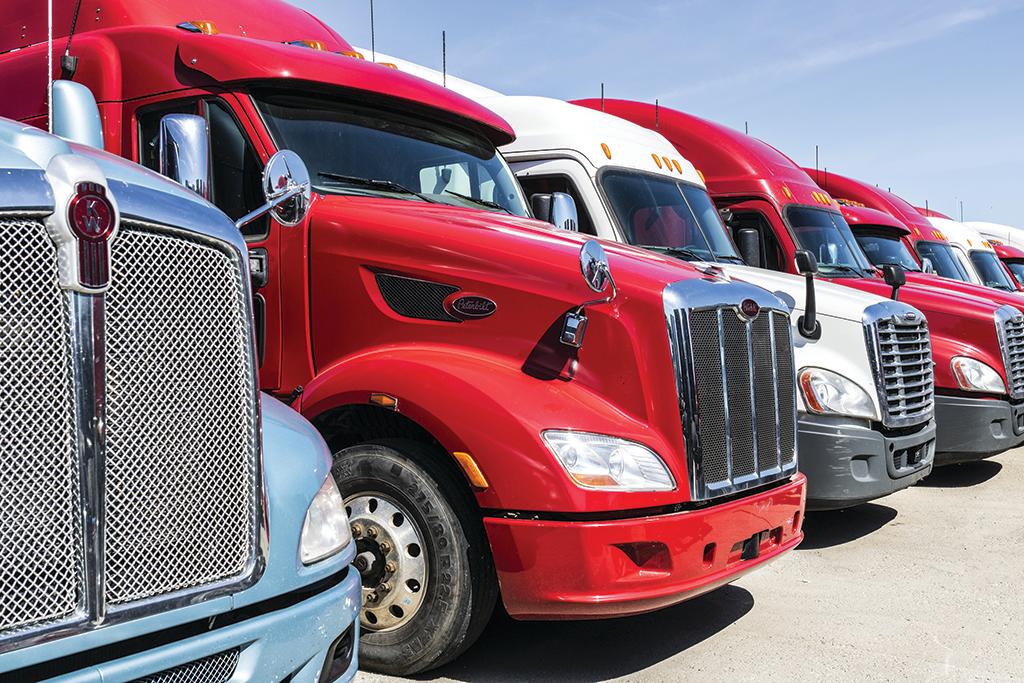Grainger Is Driving the Safety Shoe Business by Hitting the Road With Shoemobiles

As one of the country’s top suppliers of maintenance repair and operating products, W.W. Grainger Inc. relies on multiple tactics to reach its customers, including brick-and-mortar stores and e-commerce. It also routinely hits the road with a fleet of shoemobiles, which give it direct access to employees at manufacturing plants and warehouses across the U.S.
The shoemobile sales model has long been popular with professional safety managers, who need to guarantee that employees are wearing footwear to protect them against job-related injuries. And they have good reason to enforce high standards: According to Grainger, the average worker’s compensation paid out today for a foot injury is $8,500.
Related stories
5 Female Leaders on How to Get Ahead in Male-Dominated Industries
7 Workboot Brands That Are Closing the Gender Equality Gap
These Are the Top Tech-Driven Workboots for Men This Season
The firm operates about 50 shoemobiles that vary in size, from smaller-box trucks to 18-heelers that can stock up to 2,000 pairs. Average prices for shoes in the trucks range from $100 to $125, though most companies offer workers a footwear stipend for their purchase.
Bruce Riebe, senior manager of footwear program specialists, said the trucks travel the country, with a few gaps in some of the mountain and plains states. “That is where we focus our web model,” he said. Although Riebe declined to break out sales numbers by distribution channel, Grainger in 2018 reported $11.2 billion in revenue, an increase of 8 percent over the prior year.
Dawn Pearson, VP of global operations for Footwear Specialties, one of Grainger’s vendor partners, explained that shoemobiles are often a more costly way to do business (due to expenses such as truck insurance), but many companies prefer this retail model. “It’s convenient, and safety managers can have companies show workers footwear with [specific] functionalities,” she said.
Shoemobiles were not always part of Grainger’s business model. The company added the service in 2013 when it acquired Safety Solutions Inc., a multichannel retailer operating in about 12 states. And it’s not alone in the trucking channel. “There are medium and small competitors out there that tend to be more regional,” Riebe noted, citing bigger players such as Red Wing and Hytest.
As with many trades in the U.S. workforce today, the trucking industry has a shortage of drivers. However, Grainger has found a way to keep its fleet moving by tapping into its in-house staff. “We have a great pool of individuals who do other things, and sometimes that experience translates to [driving],” said Riebe, adding that its drivers must also learn how to conduct sales.
The mobile service reps also are trained to fit workers properly and are knowledgeable about the safety attributes of products. “Safety footwear is unique compared with other types of protective equipment since it’s typically on the worker the entire day, unlike glasses and earplugs,” said Riebe. “If it doesn’t fit right, it’s going to affect everything that happens to a worker throughout the day.”
Wolverine has been a resource for Grainger for over 20 years, according to Tess Huston, sales manager for the brand, and has seen large growth with the retailer. “We attribute it to the mobile distribution business they have,” she said. “Shoemobiles are popular with large companies, where they can have tens of thousands of employees.”
For Grainger, the greatest advantage is connecting with consumers. “It’s a service that allows you to be sticky with your customers, and leads to opportunities to dovetail into other products,” said Riebe.
Watch FN’s video on celebrities in workboots below.
Want more?
5 Easy and Affordable Tips to Stretch Your Leather Shoes for a Comfortable Fit
9 Must-Have Men’s Sneakers for Spring
9 Men’s Workboots That Offer the Best of Safety and Comfort
Sign up for FN's Newsletter. For the latest news, follow us on Facebook, Twitter, and Instagram.

